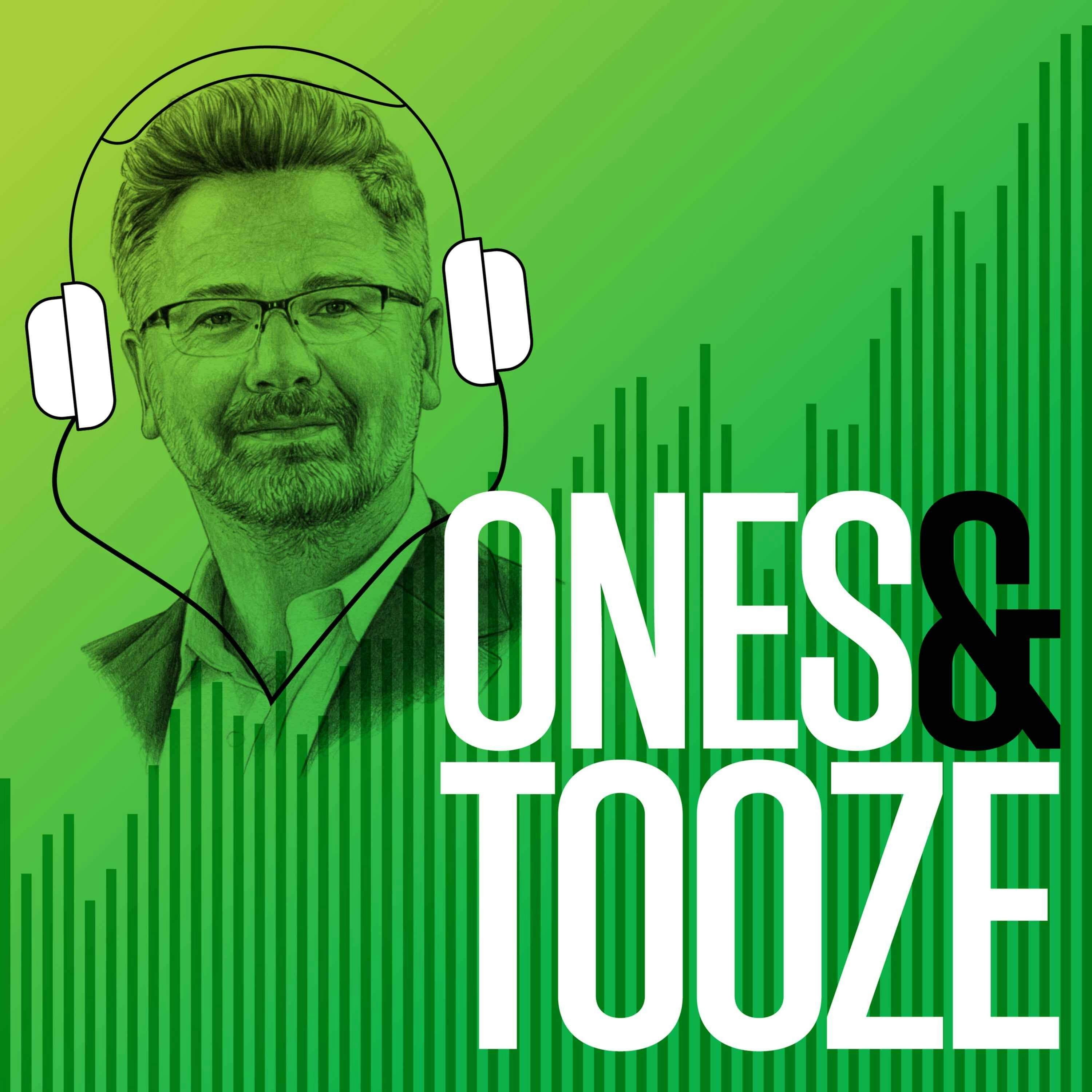

Ones and Tooze
Foreign Policy
Foreign Policy economics columnist Adam Tooze, a history professor and a popular author, is encyclopedic about basically everything: from the COVID shutdown, to climate change, to pasta sauce. On our new podcast, Tooze and FP deputy editor Cameron Abadi will look at two data points each week that explain the world: one drawn from the week’s headlines and the other from just about anywhere else Tooze takes us. Check out Adam Tooze’s column at https://foreignpolicy.com/author/adam-tooze/.
Episodes
Mentioned books

37 snips
Jan 30, 2026 • 1h 3min
Trouble in the Chinese Military
A look at recent top-level removals in China's military and what they signal about power and instability. Discussion of PLA spending, modernization and the 2027 readiness timeline. Examination of doctrinal fights, joint operations reforms and lessons drawn from Russia-Ukraine and drone warfare. A shorter segment on Lombardy and Milan's economic and cultural roles.

109 snips
Jan 23, 2026 • 46min
Seventy Minutes at Davos
In this engaging conversation, Adam Tooze, a history professor and insightful foreign policy columnist, reports live from Davos. He shares the tense atmosphere surrounding U.S.-European relations, sparked by Trump's bewildering speech, which included a peculiar demand for Greenland. Tooze explores the implications of MAGA's focus on Europe, corporate caution, and the balance of power in liberalism. He also discusses why selling U.S. Treasuries as leverage wouldn’t work and highlights the complexity of Davos' influence in these turbulent times.

80 snips
Jan 16, 2026 • 57min
Protests in Iran
Massive protests erupt in Iran, driven by a collapsing currency and rising inflation. Unlike previous waves, these demonstrations come from deep economic and political dissatisfaction, fueled by inequality and corruption. The hosts explore the potential impact of the Islamic Revolutionary Guard Corps and the various directions Iran's future could take. They also discuss the U.S. investigation into the Federal Reserve, analyzing market reactions and the importance of central bank independence.

117 snips
Jan 9, 2026 • 49min
The Venezuela Conundrum
Adam Tooze, a history professor and foreign policy columnist known for his incisive analysis, joins for a deep dive into U.S. involvement in Venezuela. He challenges the notion that oil is the main motivator behind U.S. actions, arguing that the economics and logistics of Venezuelan oil make exploitation unfeasible. The discussion navigates complex themes of imperialism, domestic political theater, and the real impacts of military interventions, shedding light on who truly benefits in this geopolitical chess game.

55 snips
Jan 2, 2026 • 57min
Heterodox Economists: Joseph Stalin
In this insightful discussion, Cameron and Adam explore Stalin's role as both a pragmatic political economist and a theorist. They delve into his intellectual style and the transformation of Marxism into state developmentalism. The conversation highlights Stalin's policies, from socialism in one country to the violent realities of collectivization. They examine the economic implications of rapid industrialization driven by military needs, and ponder the paradox of Stalinism’s initial successes versus its later struggles.

39 snips
Dec 26, 2025 • 43min
Heterodox Economists: Leon Trotsky
This discussion dives deep into the life and legacy of Leon Trotsky, exploring his revolutionary journey and the concept of permanent revolution. The hosts unpack his critical role during the turmoil of 1917-1921 and contrast his internationalism with Stalin's isolationist strategies. They also examine Trotsky's thoughts on art, highlighting his materialist criticism and disdain for Soviet cultural norms. The conversation touches on Trotskyism's enduring impact and speculates on what might have happened if Trotsky had led a state.

29 snips
Dec 19, 2025 • 36min
Funding the War in Ukraine
Europe's decision to loan Ukraine over $100 billion instead of utilizing frozen Russian assets reveals a paralysis in addressing geopolitical challenges. The podcast dives into the political stakes behind Europe's reluctance to share financial risk, and how failure to fund Ukraine could lead to a financial crisis. Discussions also touch on the implications of Germany's new leadership, the stalled EU-Mercosur trade deal, and the pressing need for Europe to assert its political agency amidst potential decline.

Dec 18, 2025 • 34min
Heterodox Economists: Rosa Luxemburg
Dive into the revolutionary life of Rosa Luxemburg, a Polish Jewish thinker who reshaped social democracy. Discover her critiques of nationalism and capitalism, emphasizing class solidarity over ethnic identity. Explore her unique views on imperialism and the necessity of non-capitalist 'others.' Compare her ideas with Lenin's, particularly around innovation and mass movements. Luxemburg championed spontaneity in proletarian politics and believed in a pragmatic approach to theory and practice. Her stark slogan 'socialism or barbarism' warns of the perils of unchecked capitalism.

53 snips
Dec 12, 2025 • 39min
China's Trade Surplus
Explore the revolutionary ideas of Rosa Luxemburg, a pivotal figure rejecting nationalism for a broader internationalism. Discover her unique critique of economic nationalism and the challenges she posed to traditional socialist thought. The discussion delves into her theories on capitalism's reliance on external 'others' and the importance of mass strikes for political learning. Interesting contrasts with Lenin's views enrich the narrative, shedding light on her enduring relevance in today's radical politics.

55 snips
Dec 5, 2025 • 42min
Heterodox Economists: Vladimir Lenin
Adam Tooze, a Columbia University professor and Foreign Policy economics columnist, dives into the life and ideas of Vladimir Lenin. He explores how Lenin's mixed background influenced his revolutionary thinking and his interpretation of capitalism's emergence in rural Russia. Tooze discusses Lenin's theory of imperialism and contrasts his activist approach to Marx's scientific views. Additionally, he analyzes Lenin's pragmatic shifts in economic policy and assesses his lasting impact on the Soviet state and its eventual trajectory.


